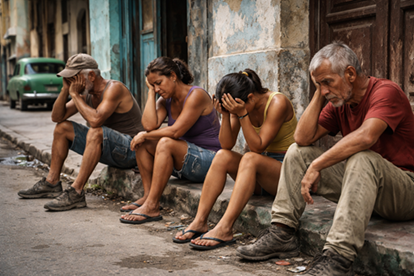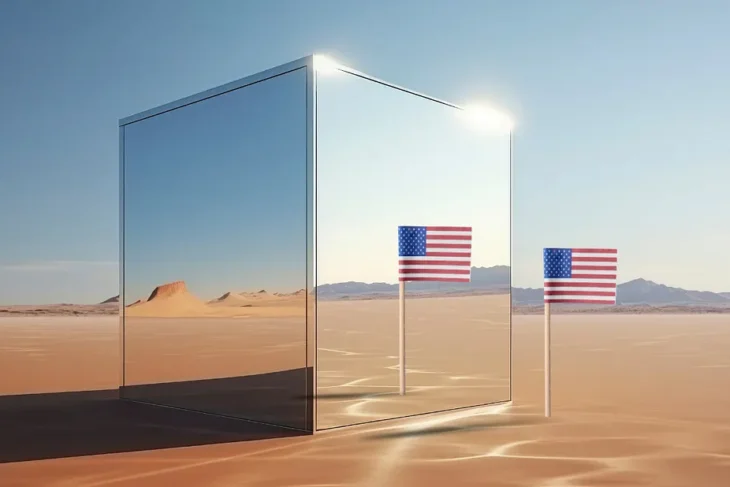The recent standoff by who have been alleged to be members of the Jamaica Constabulary Force (JCF) on a ganja eradication mission and the Maroon community has stirred much conversation. On one side are people who state vehemently that the Maroons are not autonomous and should therefore shut up and fall under central government authority. On the other are those who state that there are treaties which have been signed many moons ago. We are then ritualistically shown these documents, and are told that they should be honoured and the Maroons left alone.
This is a touchy subject, one which brings up many emotions, and justifiably so. It however shows how little education and attention have been given to our indigenous communities, resulting in a hatred and degrading of them; and it also shows how badly Jamaica needs to reassess its ties to Britain and craft a new constitution.
Like most people who know the history of the Maroons I am torn. They fought for their freedom yes, but they won that freedom by becoming active agents — as their actions in the Morant Bay Rebellion show — of the enslavers. But then, I wasn’t there in those material conditions and given that choice, so I don’t truly know how I would act.
We, in the 21st century, know that Haiti’s revolution was on its way, they did not. We, with hindsight, and the benefit of historical archive material, know how weak the British were and how close to surrender they were. They did not have that information. However, the question of autonomy is such a legal grey area that on both sides of the debate are all of Jamaica’s constitutional lawyers, legal scholars, ex-judges and lawmakers who say either that the treaties have no validity, that they were made null and void once we became independent, or that they are valid and should continue to be honoured. Why the grey area though, shouldn’t it be straightforward?
No, and this is so because Jamaica is only nominally independent and even then, with no organic constitution to deal with our organic issues. What we do have is nominal fealty to the Crown. While the people, through their members of parliament (MPs), select the Prime Minister (PM), it has to be ratified by the Governor General (GG) on behalf of The Queen and the GG may very well refuse it and select someone else.
The army, though answerable to the prime minister, can only be used if ratified by… wait for it… the GG on behalf of The Queen, so technically the GG could say no. On paper, a PM is removed when MPs remove support for the individual, however that again needs to be signed off by the GG who, in theory, could refuse. It gets better, the GG, as was seen in Australia, can remove the sitting PM with no consultation from the parties concerned, and in Grenada can call for the invasion of the country even if it has a PM (albeit one who seized power in a coup).
Apart from that, nowhere in the constitution is mentioned the Maroon treaties. Can we assume that the treaties have been grandfathered like the American airbases, or are we to assume that they have been done away with? Assume is all we can do at the moment because nowhere has this issue been dealt with and a large reason behind not touching the subject is that to do so would mean touching other subjects which politicians would rather see left alone.
Remember, this would mean a referendum, so already the Crown is on the ballot; but why stop there, why not ganja legalisation, free housing enshrined in the constitution, a recognition of Jamaican Creole, dealing with the status of the Maroons and so on? No, our politicians who are loathe to do any actual work quite enjoy this legal grey area the nation finds itself in as it means less work for them.
The lack of education and attention to indigenous communities is shocking. It is a safe bet that if one asks the majority of citizens, they will either say
1. We have no indigenous community, or
2. That they were all exterminated by the Spanish.
This is false on so many levels. Firstly the United Nations recognises the Maroons as indigenous peoples of Jamaica. The state of Jamaica has ratified this. On another level, this is false because the Taino community is not only alive and well — albeit in small numbers — but has, and this is where education, even first form history comes into play, been intermarrying with the Maroon communities since the days of Spanish colonisation.
The Maroons, in every sense of the word, are Jamaica’s indigenous people, so separate and apart from any treaty which the State may or may not maintain once a new constitution is drawn up is the matter of how do we respect the rights of the Maroons, the indigenous people, on their historic lands?
This then leads us to how we treat our indigenous communities and culture. In case anyone missed it, Jamaica is a predominantly Black country. The overwhelming majority are of African descent and can trace their lineage back to those who were enslaved. There are also many who have their roots in the indentured servants from Africa who came here once slavery was abolished.
Our indigenous religions are mocked, shunned or demonised — at the worst of times the poster child being Pocomania and Obeah, practices which are still shrouded in lies and mystery based on non-practitioners’ fears and texts written by slave masters. The one we always draw for though, and which remains a burning issue is, the treatment of Rastafari, a religion which is wholly indigenous, recognised worldwide as a religion and remains Jamaica’s biggest drawing point when selling tourism abroad. Rastafari is still condemned, spat upon and not given its due place in society alongside traditional religions and even upstarts such as the Brazilian cult.
This self-hatred is seen in the standoff with the Maroons, the abuse Rastas still face to this day and the refusal to remove even notional allegiance to an entity which enslaved, colonised and belittled us to such a state that a broken nation and a broken people are only now able to begin to pick up the pieces and try to do something resembling a rebuild.
Let us use the recent incidents not simply to get angry and then forget, let us use them to ask serious questions and press our leaders for serious and lasting responses. It may not work immediately. We may need to very well shake up and remove both political parties before any change is made. But until we as a people begin asking the questions and demanding satisfactory answers we will always be in the same position where we are technically free but always beholden to the dictates and ideas of people other than ourselves.




The Jamaican motto is “Out of Many”. How can Jamaica deny its history and that include the Maroons?